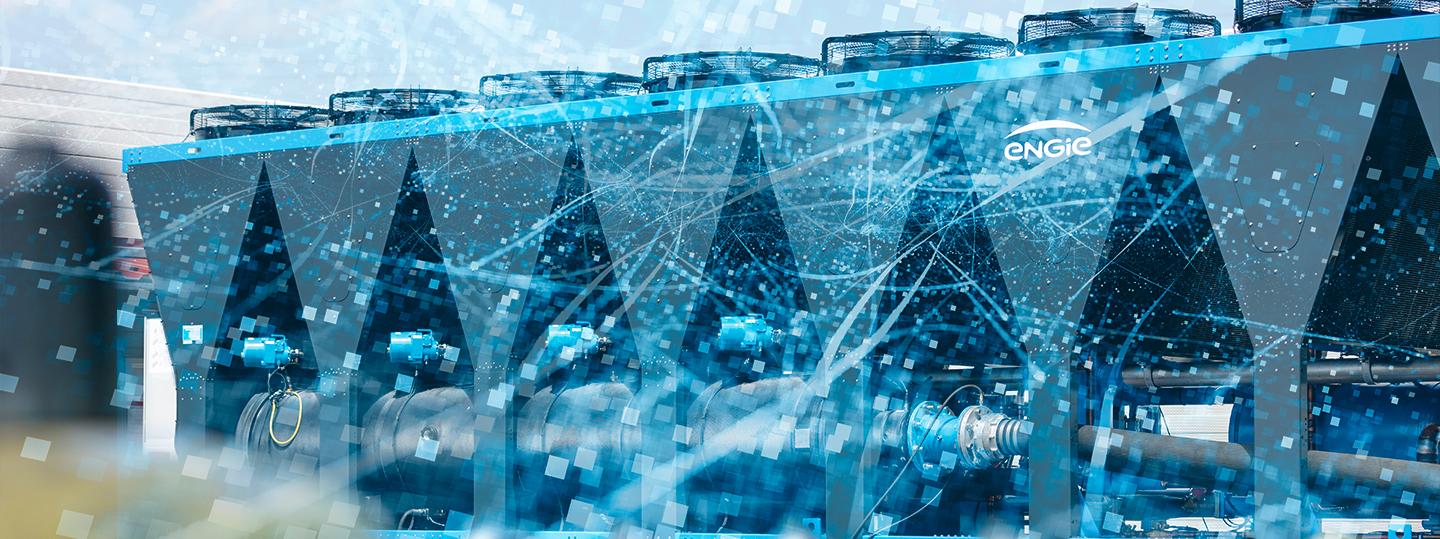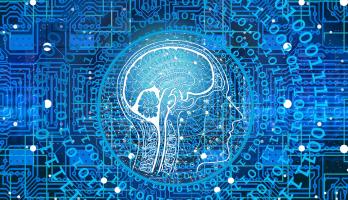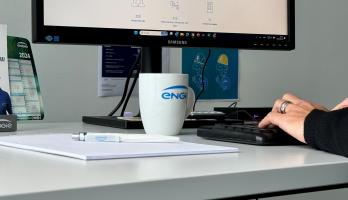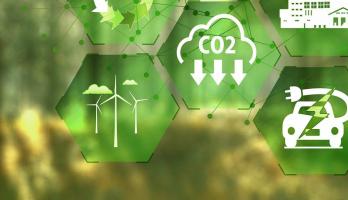
‘The future belongs to artificial intelligence’
Many of us now use Siri, Alexa and others as a matter of course. What role does artificial intelligence play in the refrigeration and heating industry?
At the moment, both the internet of things (IoT) and artificial intelligence (AI) still play minor roles in refrigeration and heating technology. But that will change very quickly. We have observed that many developments first occur in other industries, such as the automotive industry, and then rapidly become important to the refrigeration and heating sector. After all, energy savings and efficiency increases are key issues for users who want to accelerate the transformation towards climate neutrality. That is why our team is always working on making our chillers and heat pumps as efficient as possible. Predictive maintenance, for example, can make a positive contribution. It allows us to track remotely whether a customer’s machine is operating at high efficiency – and to react if necessary. But predictive maintenance only makes sense if the data are analysed with the help of AI. Without it, people would have to manually analyse and evaluate millions of pieces of information, which is simply not possible. But AI applications are perfect for the task – and on top of that they are faster, cheaper and more precise.
What suitable solutions does ENGIE Refrigeration offer its customers?
We believe you either pick up a new development early on, or you end up chasing after the trend – and we at ENGIE Refrigeration intend to be at the cutting edge. That is why we have been working on a predictive maintenance project since the start of 2021. It is based on our current Cool Care hardware, which we developed when we redesigned our QUANTUM Water chillers. As a remote maintenance solution, Cool Care enables us to record chiller data continuously and on a large scale for the first time. We are now building on this basis in several stages, and will probably focus on the ‘machine learning’ version of AI.
Can you describe these stages?
In early 2022 we will launch a test phase, during which we will use artificial intelligence to process and evaluate machine data and then draw the resulting conclusions. We will start with an in-house test device, but we will work with selected customers on rapid implementation. We have already received enquiries from several partners who want to take this step with us. Overall I have observed a growing interest in AI applications on the market – even in highly sensitive areas such as the data centre industry. I believe it is no longer possible to avoid artificial intelligence; its benefits clearly outweigh its disadvantages. Of course, ENGIE Refrigeration meets the highest possible security standards for data transfer and machine access. We rely on a ‘defence in depth’ strategy in line with IEC 62443. We ensure system security by means of user management and authentication, and we close communication channels. Users can be absolutely certain that data protection and data security are our top priority.
What other smart projects are you working on?
We are also focussing on smartglasses. Since 2018, the development department at ENGIE Refrigeration has been using augmented reality (AR) glasses to create three-dimensional virtual objects. However, we quickly brushed up against the limitations of first-generation AR glasses. Now that the technology has advanced, we are working on mixed reality (MR/AR) glasses specifically for our service department. We aim to enable our service employees, for example, to receive fast and precise 3rd-level assistance on site in complex situations via live camera. We also plan to equip all the components of our products with QR codes, so they can be recorded and identified by means of smartglasses; during the last expansion stage, it will be possible to order those components with a simple hand movement – something we know from volume control in cars, for example. As you can see, there is huge potential here.
When will these projects reach market maturity?
They will do so in the coming months. I’m sure you understand that I’d rather not give any more details at this stage. But I can tell you that our team is working on it with plenty of expertise and passion. We at ENGIE Refrigeration have always assumed a pioneering role when it comes to programming and electronics. Artificial intelligence is my personal hobby horse. That’s why I want to be at the forefront in terms of artificial intelligence and smartglasses. And we are on the right course: we already have the necessary infrastructure and the right safety channels to utilise the high computing capacity of artificial intelligence in our machines. So we are ready for the future.
What benefits and added values do the new smart solutions from ENGIE Refrigeration provide to users?
Our mission is to provide our customers with refrigeration and/or heating as simply as possible, and as permanently as necessary. From this perspective, predictive maintenance is a full-service package. Users don’t need to take care of anything, and can instead concentrate on their core business. Ideally they won’t even notice that ENGIE Refrigeration is working for them. My vision: we identify a problem as it occurs, before the customer notices it, and immediately rectify or even prevent it. There is no need for us to visit the customer to analyse the problem, and we can bring spare parts along if we do need to be on site. With predictive maintenance, we can also provide better assistance to our customers if they encounter control and efficiency problems. This saves time and money.
What are the limits of these solutions?
I don’t believe that AI applications have any limits. In theory, anything is possible – limitations are always the result of limited resources, such as time and money. From my perspective, artificial intelligence is the future. And the corresponding tools are essential, especially in terms of efficiency increases. I am also thinking of our EER Autocontrol solution, which enables intelligent control of our chillers and can thus be thought of as a precursor to artificial intelligence. It could not have been implemented with the technological capabilities that existed just a few years ago, and now we have integrated it in our QUANTUM Water as standard. And opportunities will only continue to increase in future – the coming years are going to be pretty exciting.
To which customers and industries will the solutions be especially relevant?
In short: to every one of them. Early detection of technical changes in the machine is especially valuable to customers who require extremely high machine availability, for example to ensure precise room temperatures in a clean room or a data centre, or who operate multiple machines simultaneously. In principle, however, all customers will be able to make their chillers and heat pumps more economical with our AI-based applications. The key here is to increase efficiency, which we do with smart solutions. Energy costs are always the strongest drivers; procurement and service costs lag far behind. Optimised control allows us to improve efficiency and lower energy costs by significant amounts. So customers protect their wallets – and benefit the environment at the same time. Even users who run their thermeco2 high-temperature heat pump or QUANTUM chiller with green heat recovery on renewable energy and are thus already climate-neutral can reduce their use of climate-neutral energy. This is how we and our customers contribute towards the energy transformation with our smart products.









